Everyone makes mistakes, and sometimes, owning up to them can feel like a daunting task, especially when it comes to addressing your boss. However, a well-crafted apology letter can help mend those unintended mishaps and restore professional relationships. In this article, we'll explore the essential elements of an effective apology letter, ensuring you convey sincerity and accountability. Ready to learn how to express your regrets and move forward positively? Let's dive in!

Sincere Acknowledgment of Mistake
A sincere acknowledgment of mistakes in a professional setting can significantly strengthen workplace relationships. Recognizing errors, especially in a high-stakes environment like a corporate office, underscores accountability and respect. Transparency regarding specific actions, such as missed deadlines or miscommunication on projects, enhances trust. Citing specific consequences, whether financial losses or team disruptions, illustrates the impact of the mistake. Offering a plan for rectification, including revised timelines and improved communication strategies, demonstrates commitment to professional growth. This acknowledgment not only reaffirms dedication to the company's success but also fosters a positive atmosphere for ongoing dialogue and improvement.
Explanation Without Excuses
Apologizing sincerely at the workplace fosters a culture of accountability. A heartfelt apology should emphasize acknowledgment of the mistake without presenting excuses. Acknowledge the specific incident, such as missing a deadline for an important project, which may have affected team productivity or client satisfaction. Address immediate impacts, like loss of trust or additional stress on colleagues. Offer a commitment to improvement, indicating a willingness to implement strategies, such as time management techniques or regular progress updates, to prevent recurrence. Express gratitude for understanding and reiterate dedication to the team's success, reinforcing a positive relationship moving forward.
Assurance of Corrective Measures
An effective apology to a boss can convey a sincere acknowledgment of the mistake and assurance of corrective actions to prevent future occurrences. When addressing the situation, it is crucial to include specific details regarding the incident, the implications it had on the team or project, and the proactive steps being taken. For example, if the mistake relates to a missed deadline, outlining the revised timeline and team adjustments demonstrates commitment. Acknowledging the importance of communication in the workplace can also strengthen the assurance, suggesting regular check-ins or updates to foster transparency moving forward. Emphasizing accountability and learning from the experience underscores adherence to professional standards and growth within the role.
Expression of Gratitude for Understanding
Apologizing for a mistake can be daunting, especially in a professional setting. Expressing gratitude for understanding can strengthen workplace relationships. Acknowledging the significance of support from higher management enhances professionalism. Crafting a sincere message requires clarity and humility. It's essential to recognize the impact of the error on team dynamics and overall productivity. An effective apology encompasses accountability, recognizing how one's actions may have affected project outcomes, deadlines, or colleague morale. Highlighting a commitment to improve and preventing recurrence demonstrates dedication and respect. This fosters a collaborative environment while maintaining professional integrity.
Commitment to Improvement
Apology for unprofessional behavior can strengthen workplace relationships. Acknowledging errors demonstrates accountability. Expressing regret for missed deadlines or unsatisfactory performance fosters a culture of trust. Providing specific examples improves the sincerity of the apology. Outlining actionable steps for improvement highlights commitment to professional growth. Regular check-ins with supervisors ensure progress is tracked and issues are addressed timely. This approach can lead to enhanced teamwork and overall productivity in the workplace.
Letter Template For Apologizing To A Boss Samples
Letter template of regretful apology to a boss for inappropriate behavior
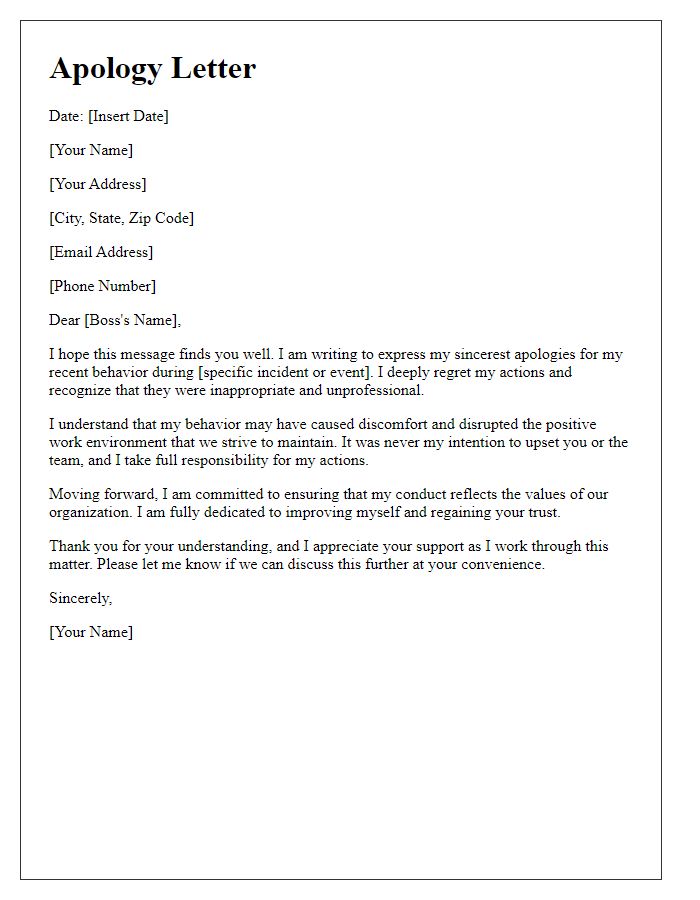
Letter template of professional apology to a boss for a scheduling conflict
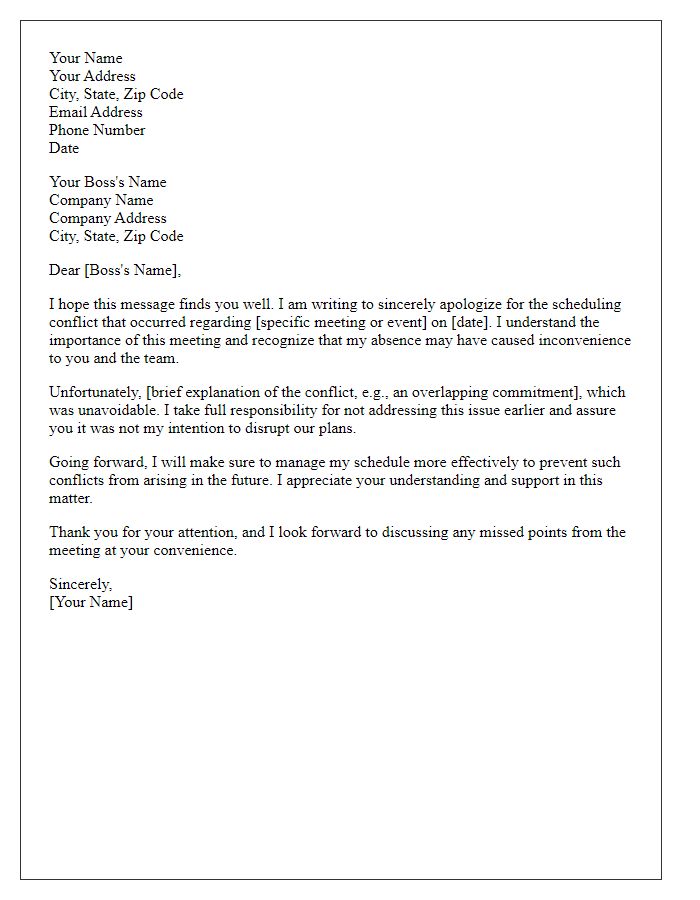
Letter template of respectful apology to a boss for failing to meet expectations
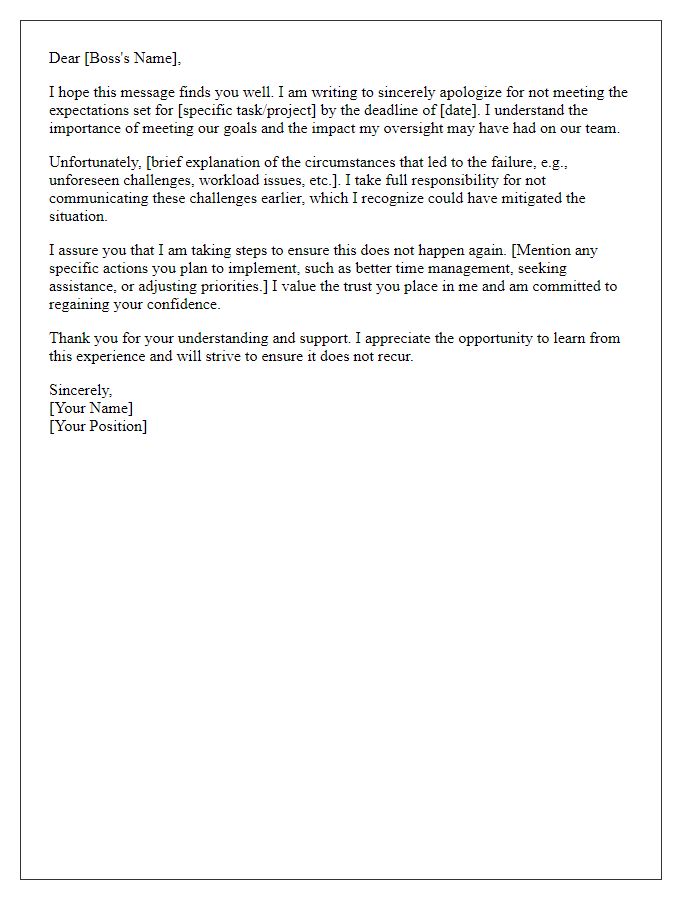
Letter template of contrite apology to a boss for not following instructions
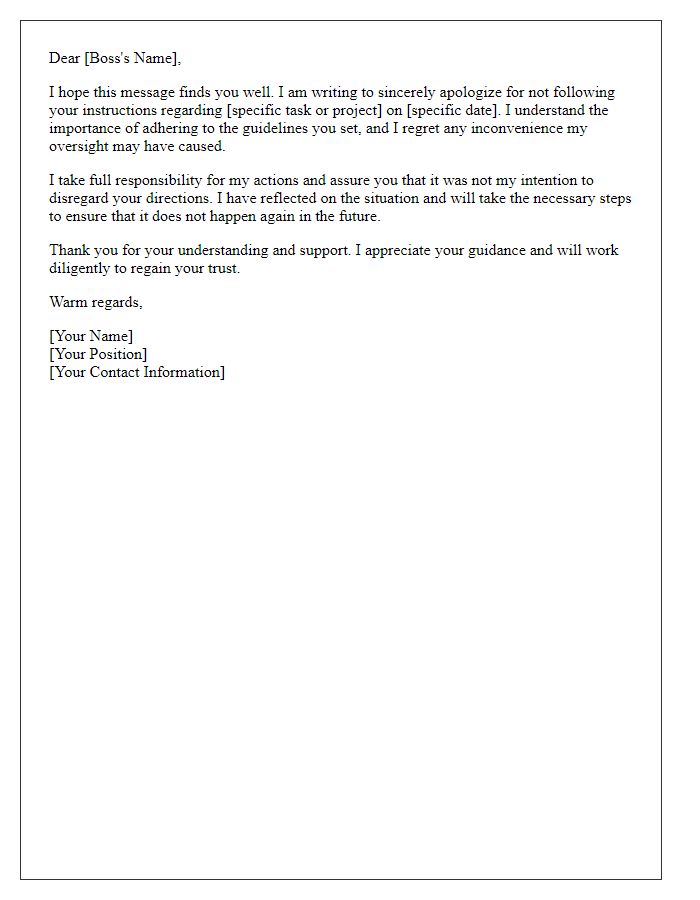

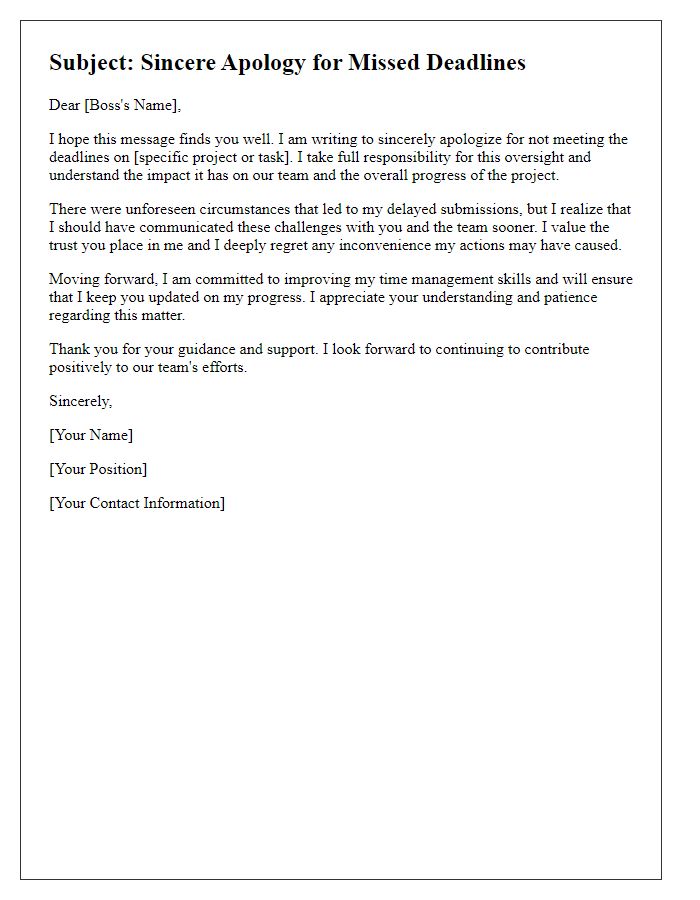
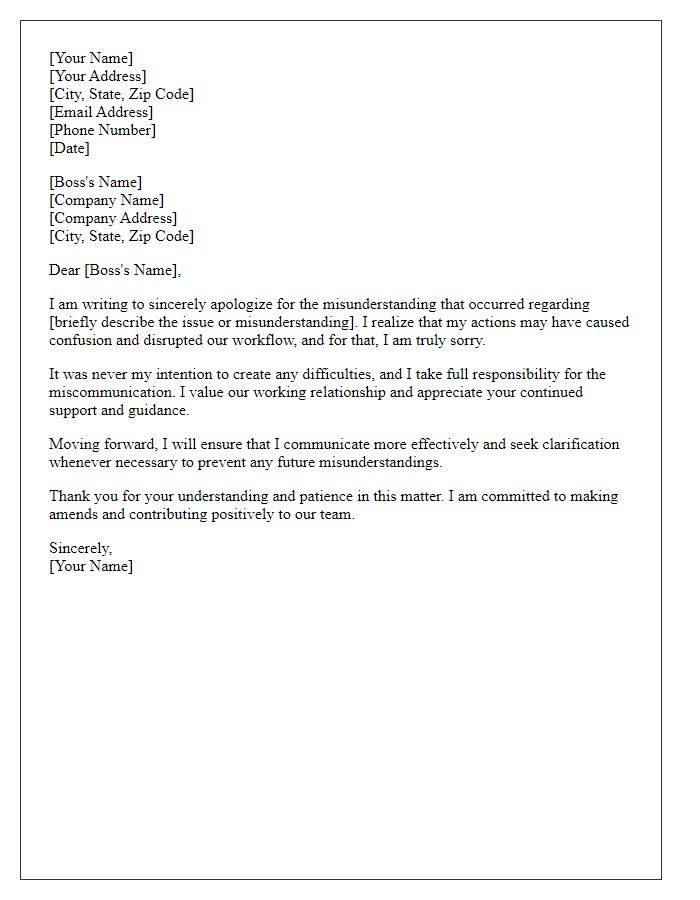
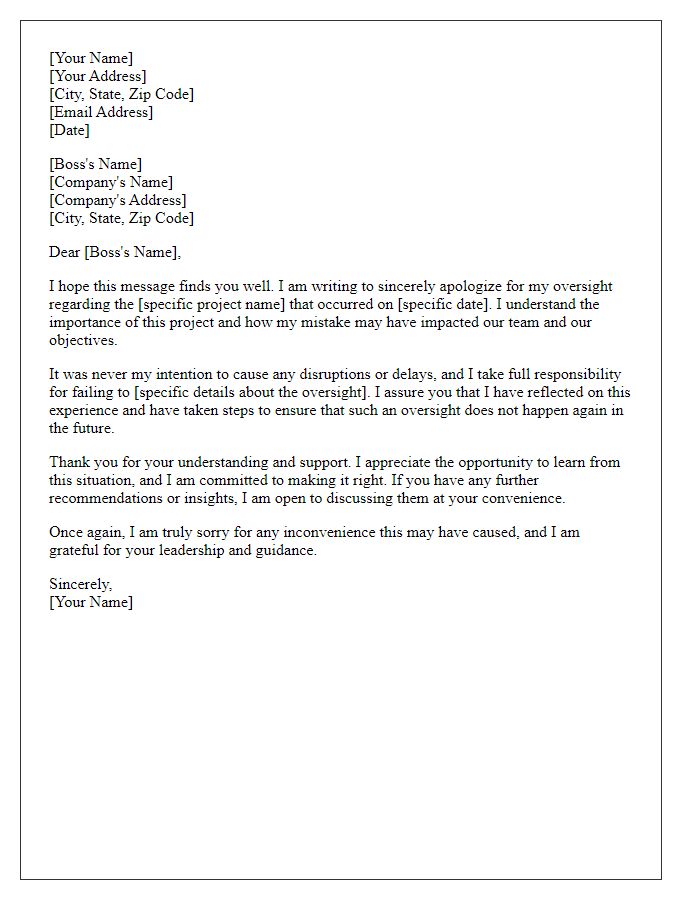
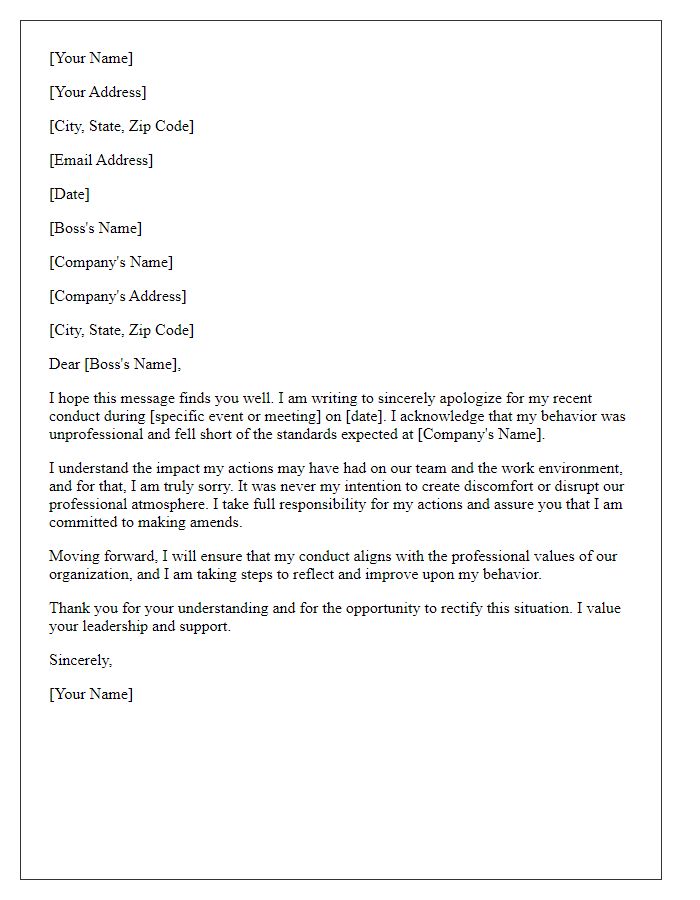
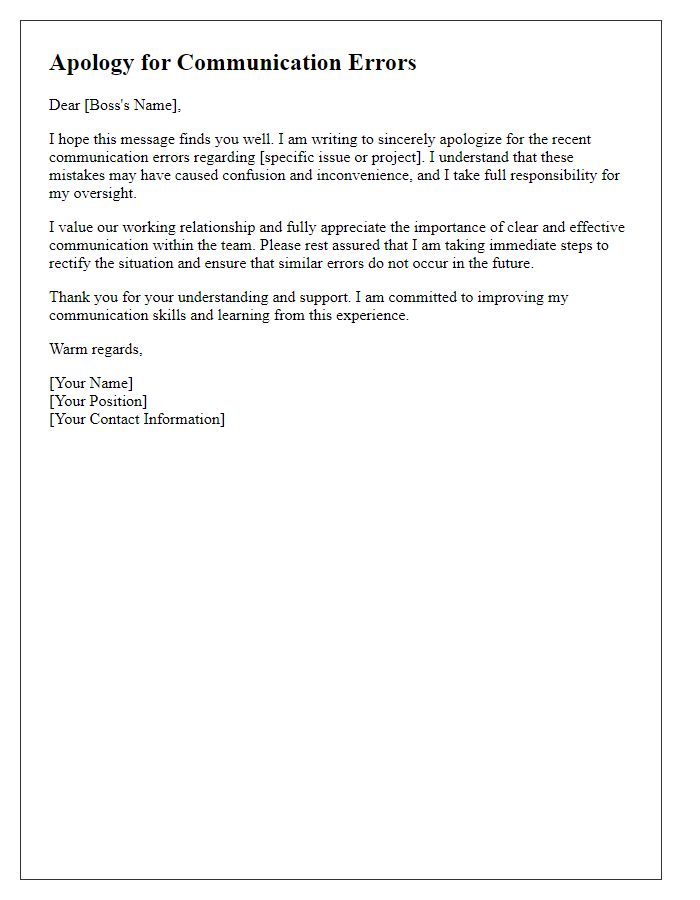
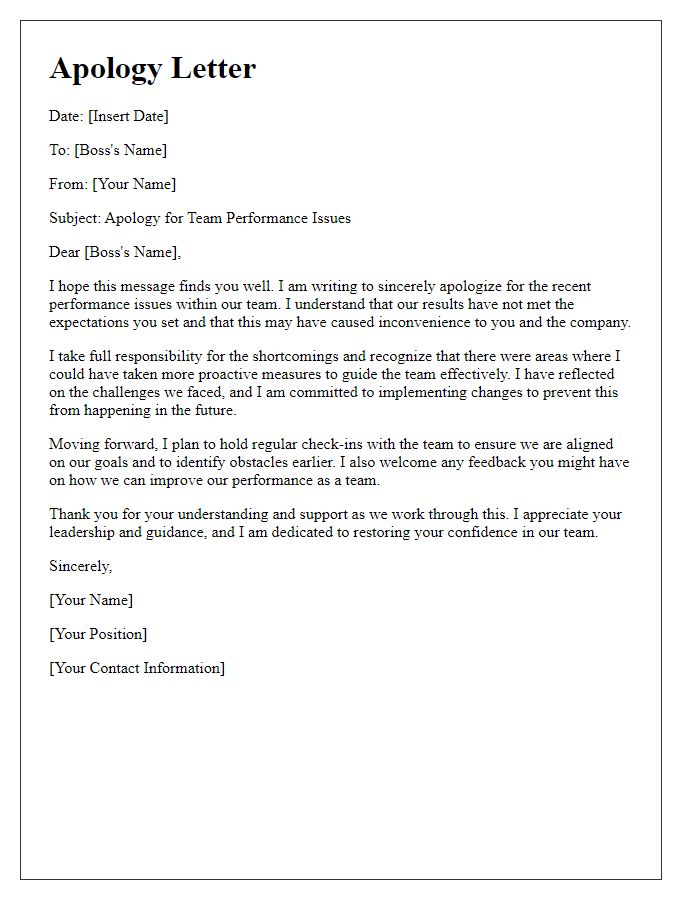


Comments